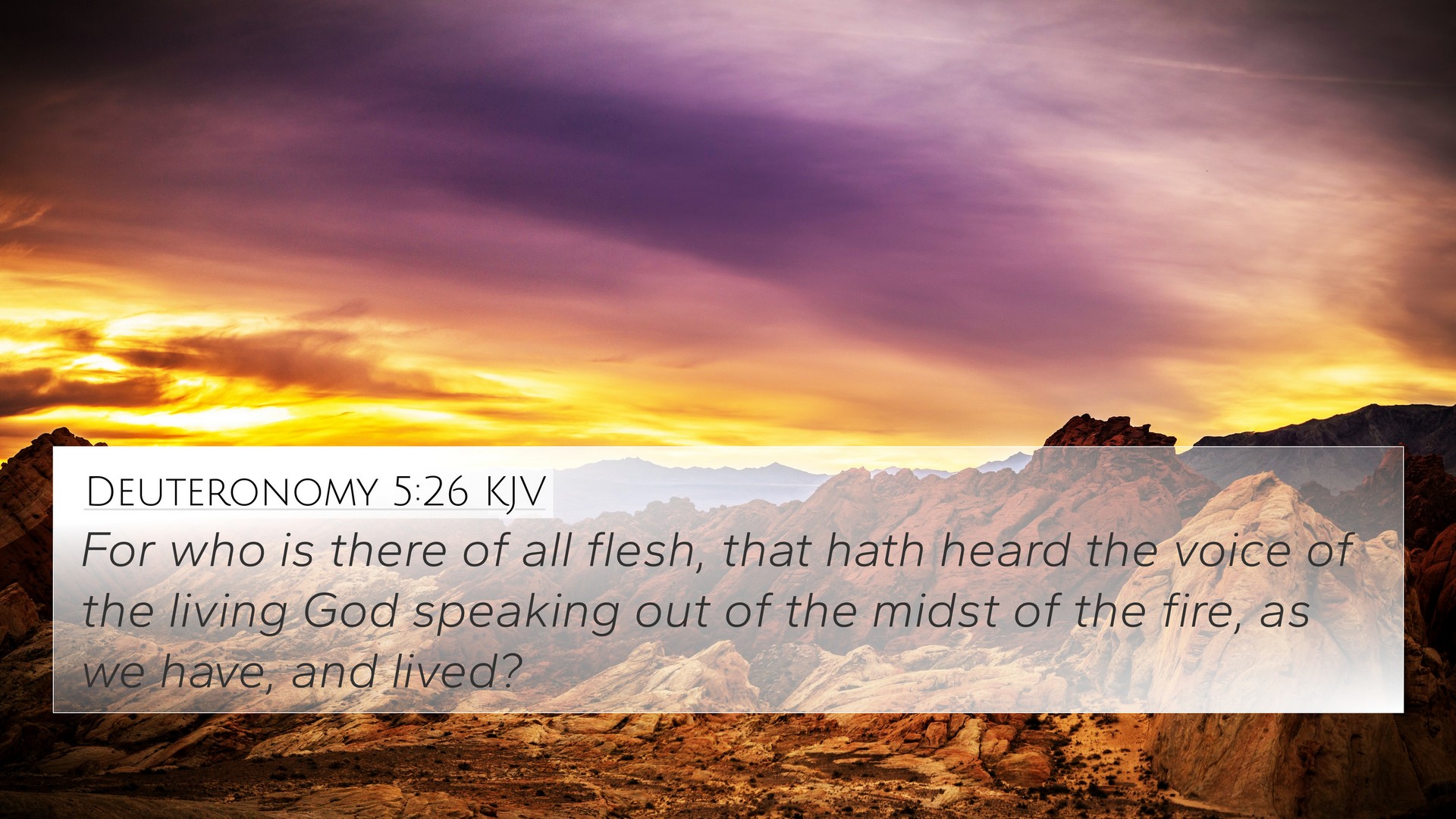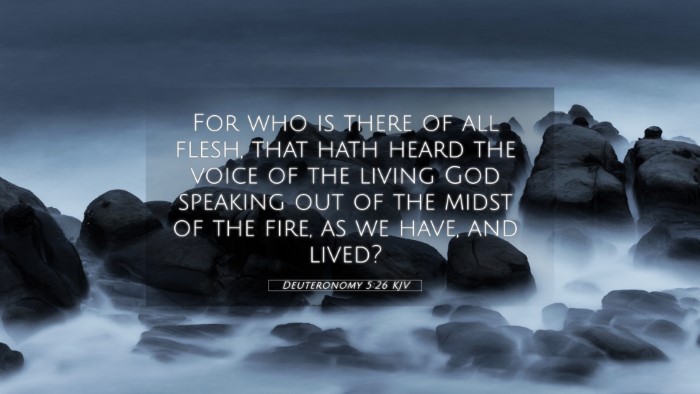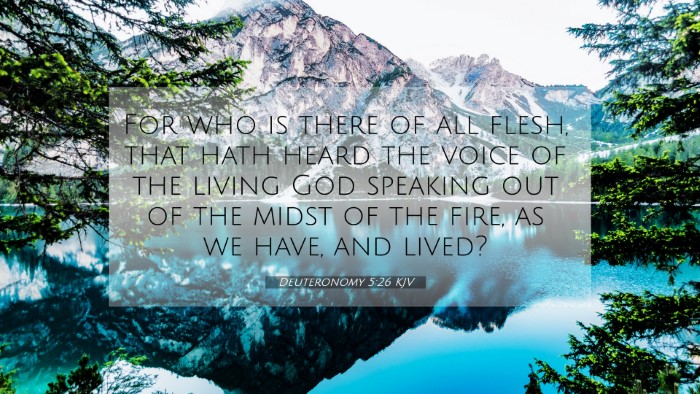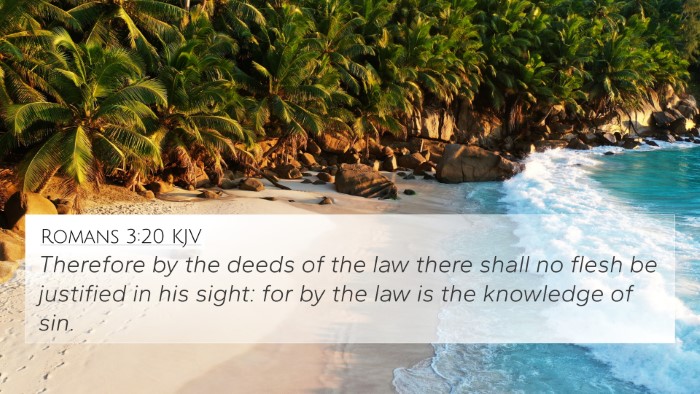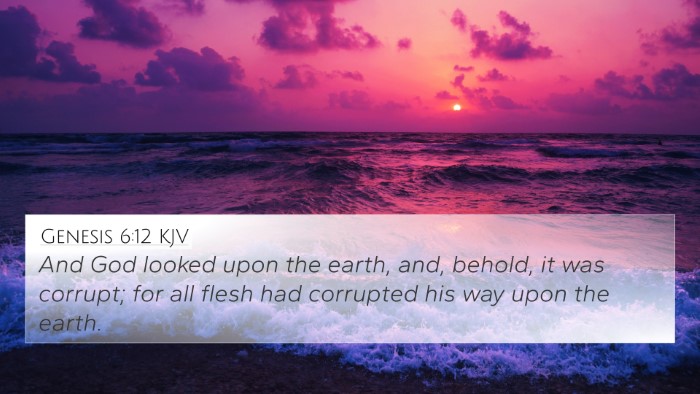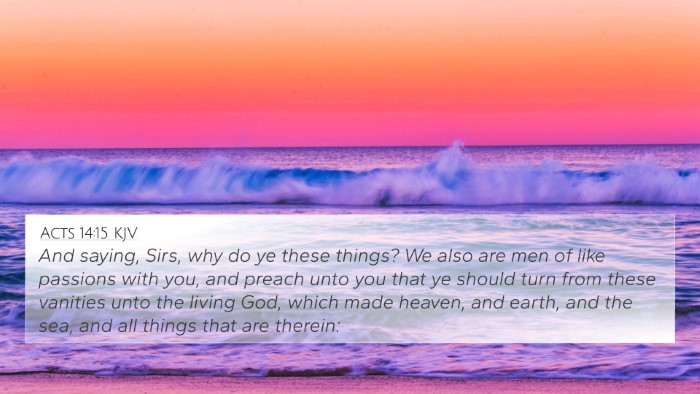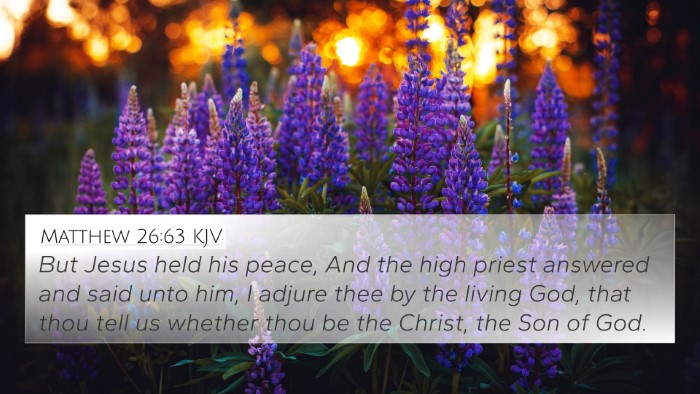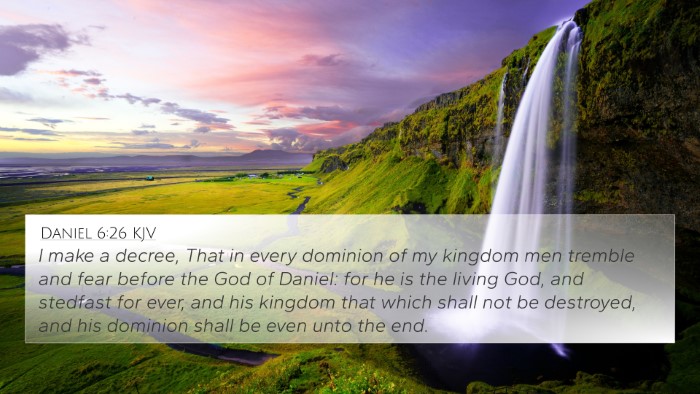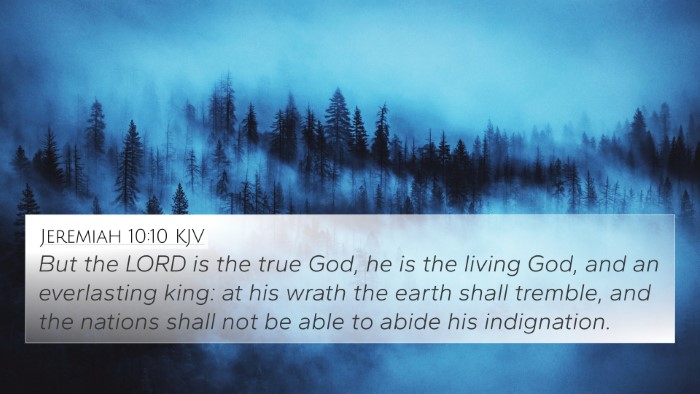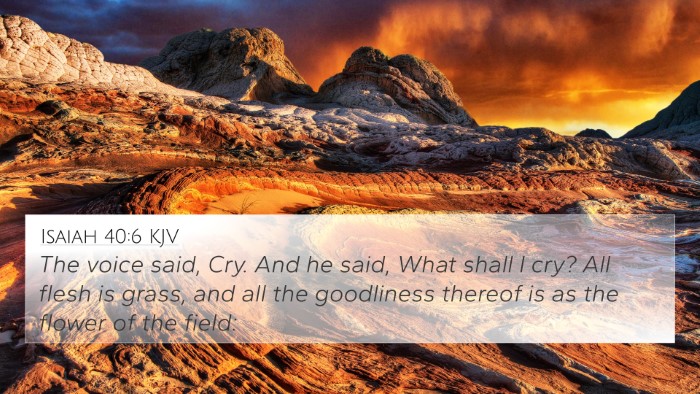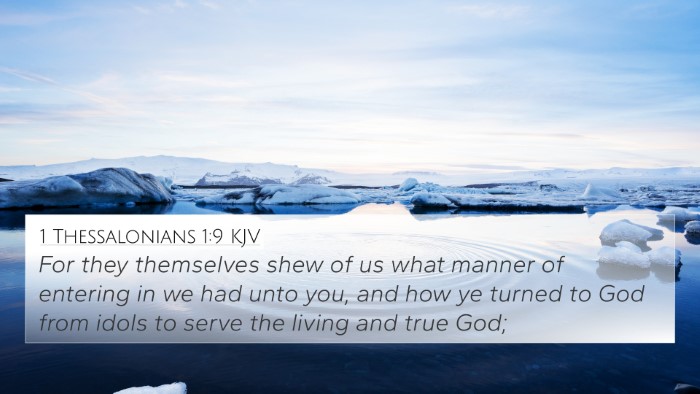Understanding Deuteronomy 5:26
Deuteronomy 5:26 states: "For who is there of all flesh, that hath heard the voice of the living God speaking out of the midst of the fire, as we have, and lived?" This verse captures a profound moment in the history of God's people, reflecting on the unique experience of hearing God's voice directly, which was a significant event that underscored His presence and power.
Commentary Insights
Drawing from the insights of Matthew Henry, Albert Barnes, and Adam Clarke, the following meanings and interpretations emerge:
-
Matthew Henry: Henry emphasizes the miraculous nature of the scene. He points out that the encounter with God was not just an auditory experience but a profound revelation of His holiness. The fear and reverence exhibited by the Israelites were appropriate given the magnitude of what they experienced. Henry implies that such experiences should lead to a deeper commitment to obedience.
-
Albert Barnes: Barnes reflects on the conditional nature of the Israelites' survival after encountering God. He notes that the holiness of God is terrifying and that it is only by His grace that they could survive such an experience. The verse serves as a reminder of the contrast between divine omnipotence and human fragility.
-
Adam Clarke: Clarke discusses the significance of hearing the voice of God as a unique privilege. He suggests that the Israelites recognized their own mortality in the face of God's overwhelming holiness. The phrase "who is there of all flesh" points to the shared humanity that stands before a divine Being. This recognition is foundational in understanding the covenantal relationship with God.
Bible Verse Cross-References
This verse has several connections that enhance its meaning through comparative analysis:
- Exodus 20:19: "And they said to Moses, 'You speak to us, and we will hear; but let not God speak to us, lest we die.'" - This reflects the fear of speaking directly to God.
- Hebrews 12:21: "And so terrifying was the sight that Moses said, 'I am exceedingly afraid and trembling.'" - Highlights the overwhelming presence of God.
- Deuteronomy 4:33: "Did any people ever hear the voice of God speaking out of the midst of the fire, as you have heard, and live?" - This reinforces the unique experience of the Israelites.
- 1 Timothy 6:16: "Who alone has immortality, dwelling in unapproachable light, whom no man has seen or can see." - Teaches the transcendence of God.
- John 10:27: "My sheep hear My voice, and I know them, and they follow Me." - Relates the concept of hearing God's voice to the intimate relationship He wants with His people.
- Acts 2:17-18: "And it shall come to pass in the last days, says God, that I will pour out My Spirit on all flesh..." - Connects the Old Testament experience to the New Covenant age.
- Romans 10:14: "How then shall they call on Him in whom they have not believed? And how shall they believe in Him of whom they have not heard?" - Indicates the necessity of hearing God's message.
Thematic Bible Verse Connections
In understanding Deuteronomy 5:26, it is important to interpret its themes through cross-references:
- Divine Revelation: Connections with other verses highlight God making Himself known to humanity, such as through prophets (Amos 3:7).
- Human Fragility: The contrast between God's holiness and human sinfulness, seen in Isaiah 6:5.
- The Covenant Relationship: References to God's covenant promises help understand why God sought communication (Genesis 17:7).
Conclusion
Understanding Deuteronomy 5:26 deepens when viewed through the lens of broader biblical themes and accompanying scripture. This verse not only highlights a critical moment for the Israelites but also serves as an invitation for all believers to reflect upon their own relationship with God. By considering cross-references and thematic connections, we bolster our understanding of the divine nature, occasional fearfulness, and the centrality of obedience in faith.
